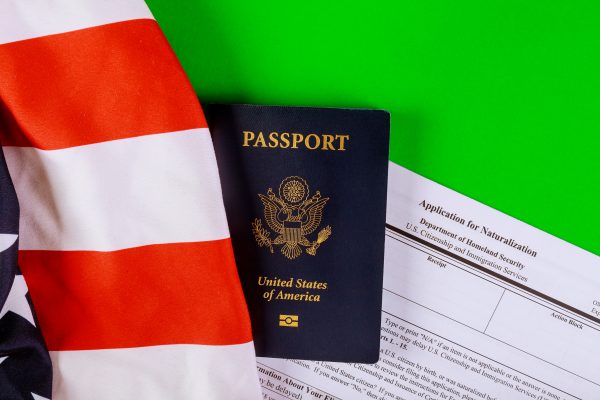Public Charge Rule in 2025: What’s the Latest?
The Public Charge Rule has been a significant part of U.S. immigration policy for decades, influencing the eligibility of immigrants for legal permanent residency (green cards) and visa applications. With the evolving legal landscape and changes under the Biden administration, the Public Charge Rule has seen notable adjustments, including its implications for future applicants.
As we approach 2025, many immigrants and legal experts are eager to understand the latest updates to the Public Charge Rule, and how these changes may affect the approval of green card applications and visa petitions. This article will dive deep into the rule’s current status, its impact on immigration, and what individuals seeking permanent residency should know.

What is the Public Charge Rule?
The Public Charge Rule is a policy used by the U.S. Citizenship and Immigration Services (USCIS) and the Department of Homeland Security (DHS) to evaluate whether an individual is likely to become a public charge—someone primarily dependent on the U.S. government for financial support. The rule’s goal is to prevent individuals who might rely heavily on public benefits from becoming permanent residents or citizens.
Key Points of the Public Charge Rule
- The government evaluates an individual’s likelihood of becoming dependent on public benefits, such as Supplemental Security Income (SSI), Temporary Assistance for Needy Families (TANF), or Medicaid.
- The rule applies to individuals applying for adjustment of status (green cards) or certain visa categories.
- Applicants may need to provide evidence that they are self-sufficient or have financial support from a sponsor to meet the standards.
What’s New in the 2025 Public Charge Rule?
As of 2025, there have been key changes in the way the Public Charge Rule is applied. Following a series of legal battles, the Biden administration has made significant modifications aimed at making the rule less restrictive and more focused on a balanced approach to immigration.
A Shift in Evaluation Criteria
Under the new rule:
- Public benefits that were previously considered in the public charge determination have been narrowed. For example, Medicaid and housing benefits will be less likely to count against an applicant, especially for children and pregnant women.
- Applicants will now be evaluated holistically. Factors such as age, health, family status, education, and skills are taken into consideration alongside income and use of public benefits.
Removal of Certain Benefits from Consideration
In previous versions of the rule, using public benefits like food stamps (SNAP), housing assistance, and Medicaid could lead to a denial of a green card or visa application. However, the 2025 revisions limit this evaluation:
- Non-cash benefits (like SNAP) are now less likely to negatively impact an applicant’s case.
- Applicants who receive certain forms of government aid, such as medical care for emergencies, are not considered dependent on the U.S. government in the same way as those receiving long-term benefits.
Increased Focus on Family and Financial Factors
In contrast to previous iterations, the updated Public Charge Rule in 2025 places a stronger emphasis on the applicant’s family ties and financial stability. Here’s a closer look at what this means for applicants:
Family Support
- Immigrants will be assessed not only on their individual financial status but also on the resources available from their family members in the U.S.
- The family-based immigration system allows for the consideration of a sponsorship affidavit, where U.S. citizen or lawful permanent resident family members promise financial support.
Financial Self-Sufficiency
- A significant factor in the new Public Charge Rule is financial independence. Immigrants will be expected to show they can support themselves through employment or other means.
- Income requirements are still part of the evaluation process, but individuals who earn above the federal poverty level and do not rely on public assistance will have a higher chance of success.
Who Is Affected by the Public Charge Rule in 2025?
The Public Charge Rule specifically applies to individuals seeking:
- Lawful permanent resident status (green cards) through family-based petitions or employment-based petitions.
- Non-immigrant visa holders applying for visa changes or extensions.
Individuals Who Are Exempt
Certain applicants are not subject to the Public Charge Rule, including:
- Refugees, asylees, and applicants for asylum.
- U.S. citizen children of immigrant parents.
- Military personnel and their families.
Additionally, individuals applying for U visas, such as victims of certain crimes, are not subject to this rule.
How the 2025 Public Charge Rule Affects Green Card Applicants
The most significant impact of the Public Charge Rule in 2025 is on applicants for adjustment of status (green cards). Here are the steps applicants must follow to ensure they meet the new criteria:
Documenting Financial Stability
Applicants seeking a green card will need to provide detailed financial documentation to show they have enough income or assets to avoid being considered a public charge. This includes:
- Tax returns
- Proof of employment
- Bank statements
- Affidavits of support from family members or sponsors
Evaluating Health and Education
The Biden administration has clarified that factors like education, skills, and health status should also be taken into account when considering public charge status. Applicants who demonstrate strong educational backgrounds or skills in high-demand occupations may be more favorably evaluated.
- Health: Applicants with disabilities or serious medical conditions will be assessed based on the severity of their condition. Those receiving medical assistance will have the support of certain legal protections, especially for children or pregnant women.
What Should You Do if You’re Affected by the Public Charge Rule?
If you are in the process of applying for permanent residency, a visa, or adjusting your immigration status, consider the following:
Plan Your Application Strategy
- Consult with an immigration attorney to better understand how the Public Charge Rule affects your case.
- Ensure you have all necessary documents, especially financial and educational records, to support your application.
Know Your Rights
If you are subject to the Public Charge Rule, be aware that not all benefits you receive will impact your application negatively. It’s crucial to understand which benefits are considered, especially as rules continue to evolve.
Family-Based Petitions
If you have family in the U.S. who can financially sponsor you, be sure to include an affidavit of support in your application. This will demonstrate that your sponsor has the means to support you financially.
Conclusion
The Public Charge Rule in 2025 reflects the ongoing changes in U.S. immigration policy, moving towards a more inclusive and holistic evaluation of applicants. The 2025 revisions emphasize financial self-sufficiency while also considering family support, education, and health conditions. Immigrants and visa applicants will need to carefully navigate these changes to ensure a successful outcome for their applications.
Understanding the new guidelines and gathering all necessary documentation is crucial to meeting the Public Charge requirements in 2025. Always stay informed about potential future changes, and seek legal guidance if you need assistance with your immigration journey.













